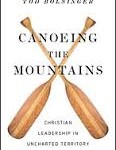
Are assumptions killing your giving?
There are 5 assumptions that will impact giving if you are the typical church. The dictionary defines assumption as, “a thing that is accepted as true or as certain to happen, without proof.”
Assumptions are dangerous. When Donald Trump announced he was running for president everyone laughed. Everyone assumed he could not possibly win. On election night everyone assumed there was no way he could win. How did that work out for them?
Assumptions left unchecked can lead an organization into trouble. Perhaps nowhere does this show up more than when it comes to giving.
5 Common Giving Assumptions – When it comes to giving I find we are still “assuming” things are still working even when they are not. Here are 5 assumptions for your consideration…
Assuming giving will be what it has always been. I have sent out a lot of emails attempting to get pastors to buy my manuals. Often they opt out of my emails and when the form asks why they will say, “not needed,” “no need for this service,” etc. What they are saying is, right now the bills are being paid and we have no needs. Yet you know that giving continues to decline AND Baby Boomers, your largest giving group, is entering into retirement. You do need giving help!
 “Canoeing the Mountains,” by Tod Bolsinger is a book I read a while back that greatly illustrates the challenges today’s church finds itself in. The basic premise of the book is that the Church is in new uncharted territory that requires new strategies. Yet what we currently are doing is doubling down on what we have always done. Our message doesn’t need to change but how we organize and communicate that message certainly does. One reason this book resonated with me so much is that I experience this doubling down on a regular basis when it comes to giving and giving strategies.
“Canoeing the Mountains,” by Tod Bolsinger is a book I read a while back that greatly illustrates the challenges today’s church finds itself in. The basic premise of the book is that the Church is in new uncharted territory that requires new strategies. Yet what we currently are doing is doubling down on what we have always done. Our message doesn’t need to change but how we organize and communicate that message certainly does. One reason this book resonated with me so much is that I experience this doubling down on a regular basis when it comes to giving and giving strategies.
“What worked for you in 1998 might not work the same way in 2018.” That was a comment I made to a couple of church leaders recently. I commented on this as their “strategy” was based upon events in the churches past that they expected to repeat for them in the future. I am not picking on this church as I hear this repeatedly no matter where I go. We are basing much of what we do in the Church on assumptions.
Assuming people are turned off by any talk of giving. If this were true charities like the Red Cross would be out of business. The problem is not that we in the Church talk too much about money, studies show we rarely talk about it, it is that we don’t make the case for WHY people SHOULD give. We typically lace our communication on giving with guilt. Guilt never works.
What we need to do is show people what their gift DOES. When you connect the dots for them how a dollar given at your church WILL change the world, you are more apt to see full offering plates. Let’s stop assuming people are turned off by all talk about money!
Assuming people “get” the importance of giving. On the flip side we can’t assume people understand how important giving is to God. We are called to make disciples and a part of being a disciple is learning generosity. Yet that doesn’t come naturally. We need to teach it since giving is counter intuitive to our selfish nature.
Assuming that passing an offering plate is the only means of collecting money. Google online shopping and sees how many articles are on people doing their shopping via the Internet. 63% of Millennials use their smartphone to make purchases. If you don’t have text giving you are missing connecting with this generation. Don’t put all your eggs into one basket!
Assuming that the offering is enough to fuel your future. We must think outside the box. I recommend to every client that they start an estate plan. I also am working on building assisted living complexes for churches as a source of additional income.
The bottom line is, we have to adapt our giving strategies to our adapting world to be fully funded! That starts by addressing your current giving assumptions. Review your assumptions and make the needed changes so you can be fully funded.
Mark Brooks – The Stewardship Coach
